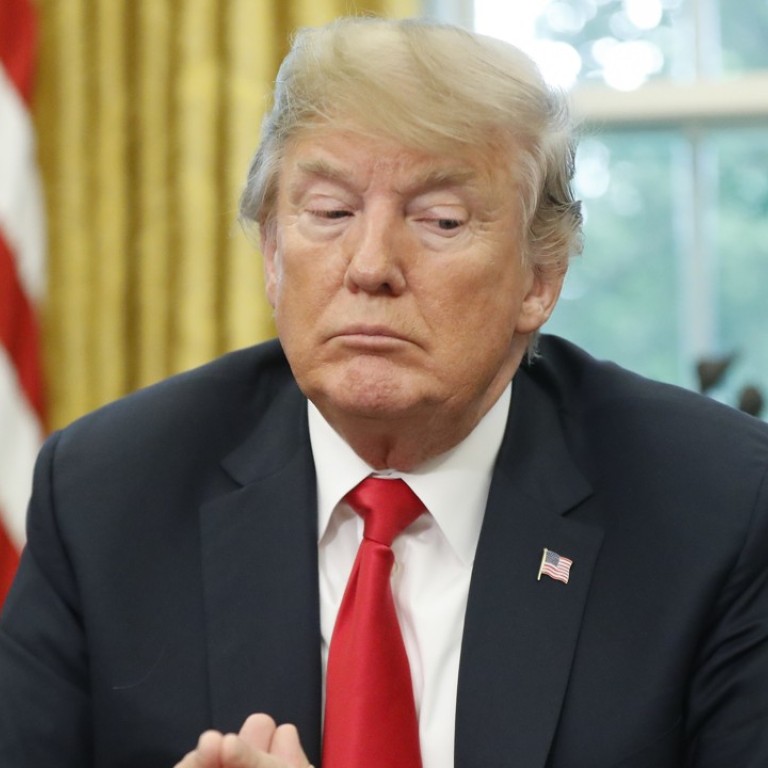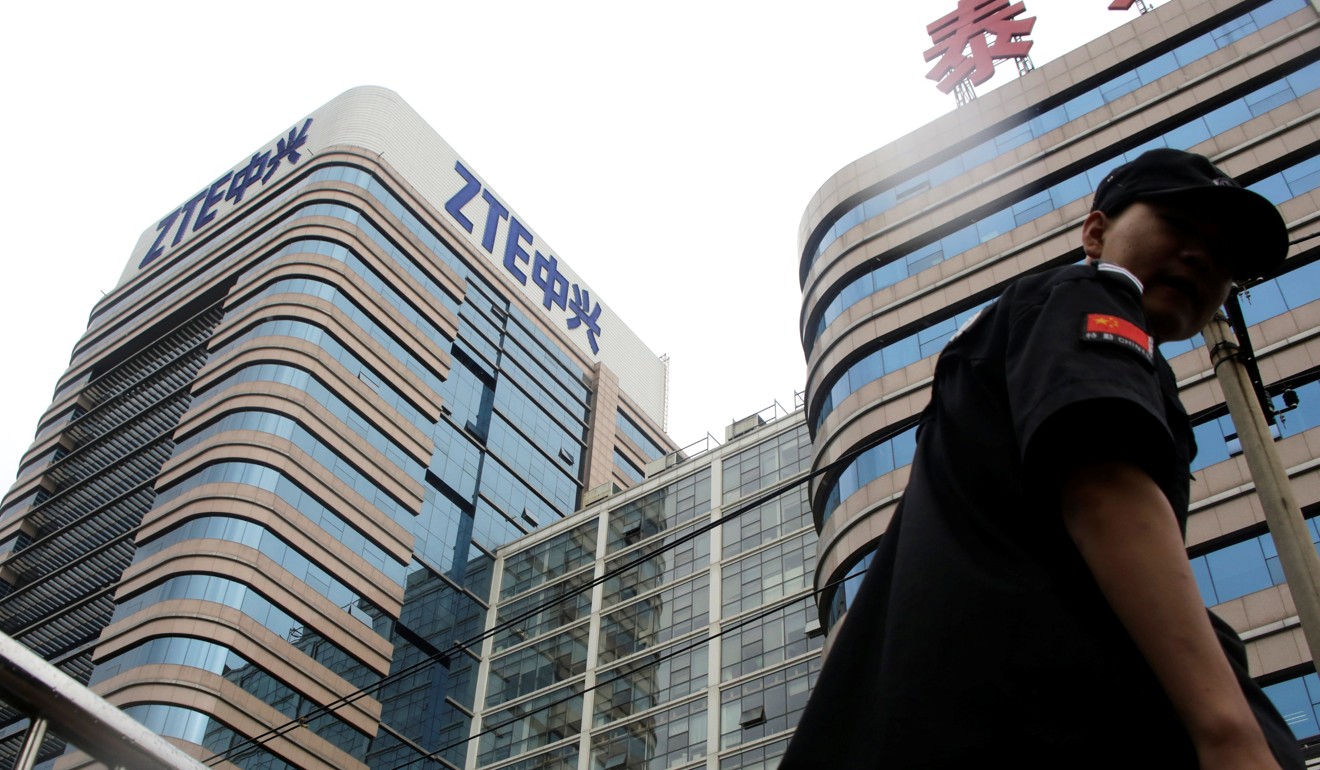
US lawmakers’ opposition to ZTE deal may have unintended silver lining for Donald Trump
The dispute with Congress over the fate of the Chinese telecoms might make Trump look better in the eye of his counterpart in Beijing
US lawmakers’ push to undo President Donald Trump’s deal that saved Chinese telecoms company ZTE might have an unintended silver lining for the administration.
After weeks of bipartisan objections to the White House lifting a ban that prevented ZTE from buying any US components, the Senate on Monday passed a defence bill that included an amendment that would reinstate the penalty. On Wednesday, Trump met with Republican lawmakers in an effort to keep his ZTE deal alive, although no compromise emerged.
The dispute, while keeping Congress and the White House in a headlock, might make Trump look better in the eye of his Chinese counterpart, President Xi Jinping.

“In one unintended way, the amendment is helpful to the president. It reminds the Chinese that they should work with him because China has few friends in Congress in 2018,” said Mario Mancuso, a US undersecretary of commerce in the George W. Bush administration.
Mancuso, who now leads the International Trade and National Security practice at the law firm Kirkland & Ellis, was responsible for international trade matters that affected US national security during his tenure at the Commerce Department.
ZTE shares bounce back ahead of Trump meeting with Republican senators
At the meeting on Wednesday, Trump urged lawmakers not to undermine his efforts on behalf of ZTE, warning them that the deal was part of a broader geopolitical negotiating strategy.
“He wanted to make sure the negotiation that [Commerce Secretary Wilbur Ross] had with the Chinese over the ZTE matter was understood and it was respected, and particularly given the fact the president is negotiating with China over things like North Korea,” Senator John Cornyn, Republican of Texas, said after the meeting.
They discussed options that would preserve a ban on US government purchases of ZTE equipment, which is considered a threat to national security, while lifting the ban on all US exports to the company.
Some lawmakers, while concurring that Trump’s deal was part of a broader negotiating strategy, do not agree that the national security issue is negotiable.
Senate Democratic leader Chuck Schumer of New York urged Republicans to resist the administration’s effort “to water down or back off of the Senate’s strong language on ZTE in the defence bill”.
ZTE pays US$1 billion fine as Senate moves to block Trump's settlement deal
Mancuso, the former Commerce Department official, said: “The amendment is less a repudiation than an assertion that US national security can’t be traded off as part of a ‘global settlement’ with China.”
ZTE got in trouble in 2016 for selling technology products to Iran and North Korea in violation of US sanctions. The company agreed to pay more than US$1 billion and penalise the workers involved.
But the Commerce Department said in April that ZTE failed to make good on its remedies, and the agency imposed the seven-year ban, which led within weeks to ZTE shutting down its operations.
‘Death sentence’ for ZTE, demand senators as Trump resists deal repeal
In May, Trump said he planned to walk back those penalties, and the Commerce Department struck a deal this month after ZTE agreed to pay a fine, install US compliance officers and replace its board.
In a race to resume buying American components, ZTE has paid a US$1 billion fine and is in the final stages setting up a US$400 million escrow account in the event of future violations.
Meanwhile, the defence bill that includes the amendment will need to be reconciled by the House and be signed by Trump before becoming law.

